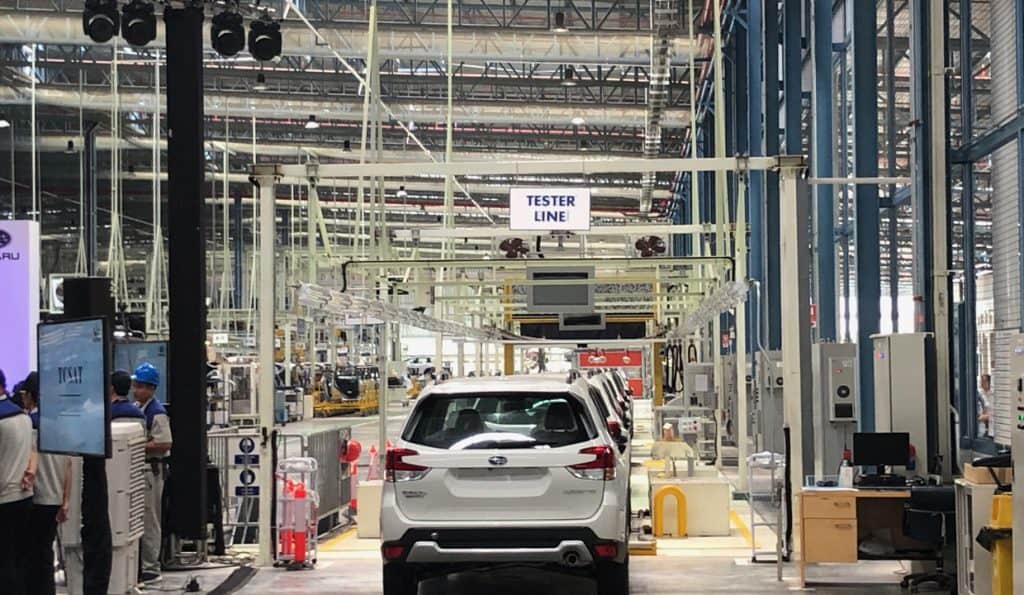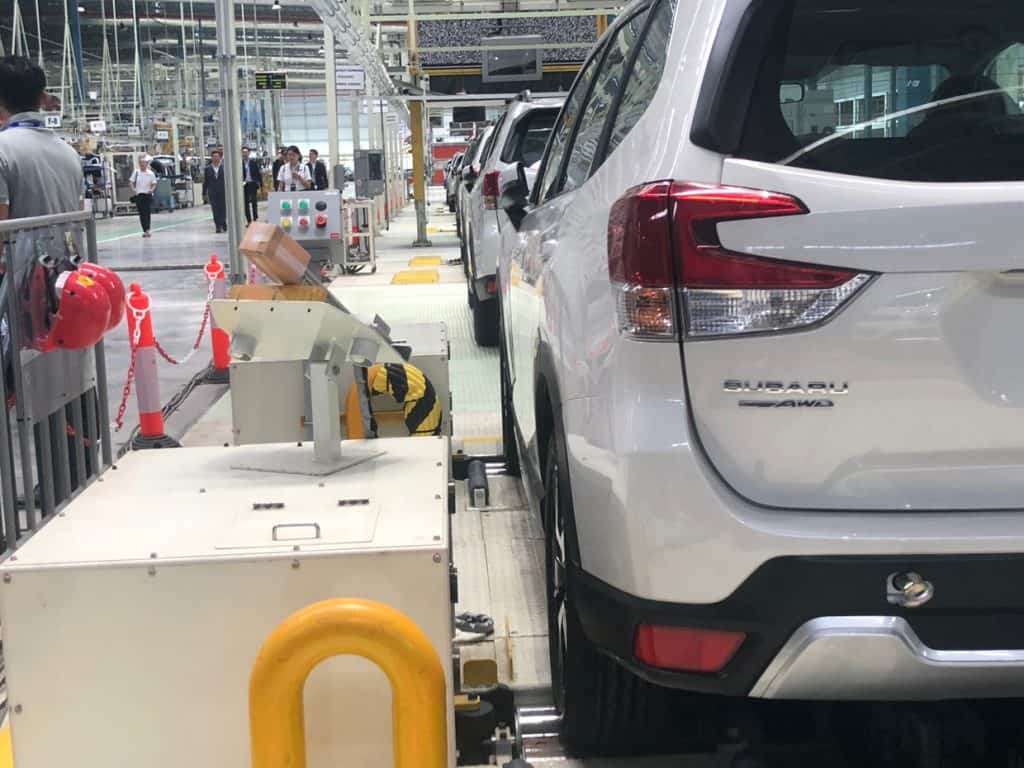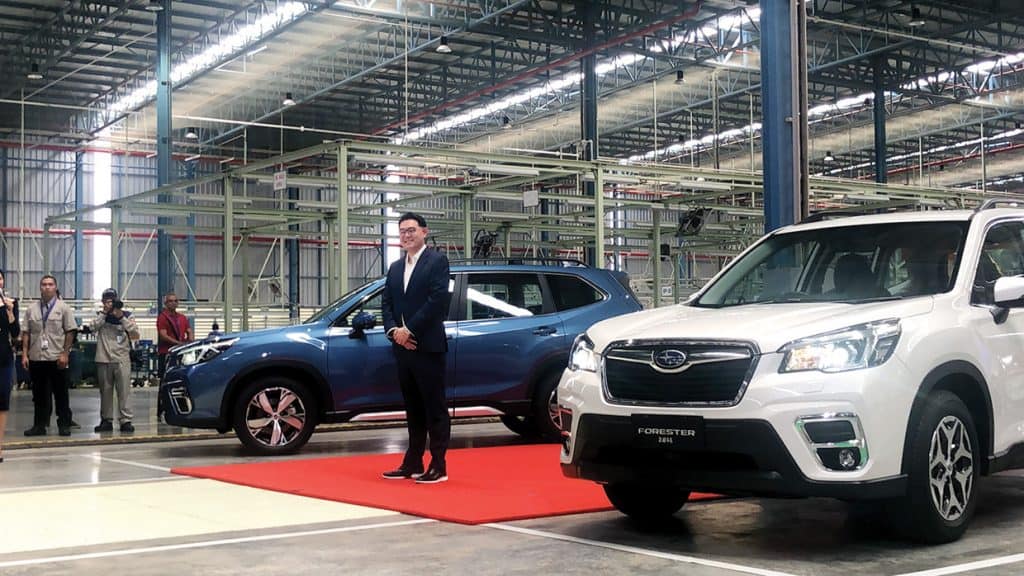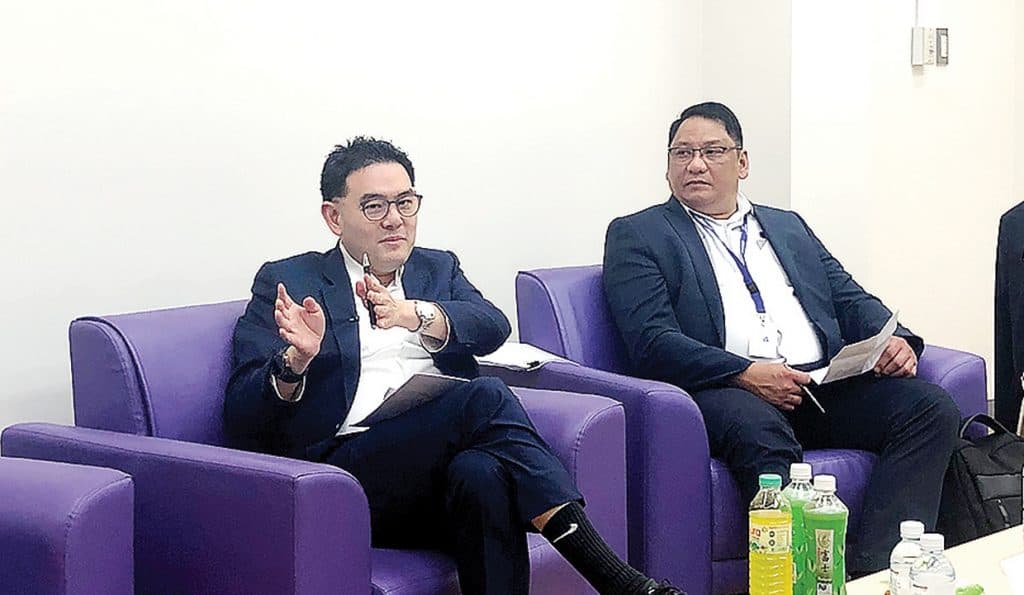BANGKOK – Tan Chong International Limited (TCIL) officially unveiled its first Subaru assembly plant in Asia outside of Japan. It is located in Bangkok’s Ladkrabang Industrial Estate. With an initial investment of ฿5 billion (approximately US$156.6 million), the plant will deliver more than 6,000 Subaru Foresters in its first operating year to meet demand for Subaru vehicles in Southeast Asia.
Tan Chong Subaru Automotive (Thailand) Limited (TCSAT) is a strategic collaboration between Hong Kong-listed TCIL and Japan’s Subaru Corporation. TCIL, headquartered in Singapore, holds a 74.9 percent stake through its subsidiary, TC Manufacturing and Assembly (Thailand) Limited, while Subaru Corporation holds the remaining 25.1 per cent.

Thailand’s status as an automotive hub for all Japanese brands has established suppliers of components and strong localization ability, which allowed the plant to start up quickly and at a reasonable cost. In addition, trade agreements in ASEAN further allow the cars to be competitively built and exported to meet growing demand.
The fifth-generation Subaru Forester is the first completely knocked-down (CKD) model to be assembled at TCSAT. The Subaru Forester units will be distributed in Thailand, Malaysia, Vietnam, Cambodia, and eventually, the Philippines, by Motor Image Group, a wholly owned subsidiary of TCIL. Some 100 cars have already been delivered to customers in Thailand.

Last March, Motor Image also reported record sales figures at the Bangkok International Motor Show, largely contributed by strong consumer interest in the Subaru Forester.
Why make a Subaru plant in Thailand? The main reason behind this is that the manufacturing industry in Thailand is already well-developed. They have a mature supplier base (that are subsidiaries of Japanese companies) where it is faster and less costly to order automotive parts that can meet consumer demand for Subaru vehicles compared to anywhere else in the region.
The vision behind this first Subaru assembly plant is to establish Subaru as the key Japanese brand in the region by having a strong presence in Thailand.

Glenn Tan, Deputy Chairman and Managing Director of TCIL, said, “This is truly a milestone for us, to be able to build Subaru cars ourselves in Thailand. From distribution, dealerships and aftersales, we are now also manufacturing Subaru cars. This strategic long-term move will allow us to better manage our supply chain, widen our product line up, localize better and be less dependent on supply from Japan. We will be better able to respond and meet consumer demand for Subaru vehicles in the region, and perhaps even beyond the region in future.”
World-class vehicles are produced locally by TCSAT, which employs a team of Japanese staff to ensure that production standards and processes meet the same stringent levels as in Japan. In addition, high-performance robotics are used at several stages of the assembly process to ensure superior quality and zero defects.

At the painting line, the pre-treatment, electrical deposits, primer and top coat are applied automatically. The key welding points of the car body and the sealer application for glass components are also automated to achieve total consistency. This is part of the technology and skills knowledge transfer which Subaru Corporation has committed to.
Quality control and correction processes take place during and throughout the assembly process. This is complemented by regular production audits by Subaru Corporation. Some of the unique features of the plant include a test track specially built to assess the condition of every car before they leave the factory. The robust quality control procedures ensure that every car produced at TCSAT is safe, comfortable and reliable.
TCSAT employs more than 400 highly skilled local workers. Expatriates from Japan and Singapore are also based in Thailand to share their technical and management expertise. TCSAT aims to provide a safe and healthy work environment for its staff.
A committee oversees the overall safety standards of the plant and proactively identifies and isolates potential risks. Personal protective equipment are worn by all staff and visitors at designated areas. All management staff are trained by external consultants on local regulations and global practices. To further promote staff health and well-being, the canteen serves nutritious Thai and Japanese meals. Leisure areas, such as a futsal field, cater to staff recreation needs.
Like its made-in-Japan counterpart, the Subaru Forester assembled in Thailand provides ruggedness and space for the whole family. The Subaru Forester features all four Subaru core technologies. The Symmetrical All-Wheel Drive sends power to all four wheels to give drivers a reliable drive in even the harshest conditions. The Boxer Engine enables a lower center of gravity for better stability and handling. Subaru’s EyeSight driver assist technology alerts drivers to unanticipated risks and helps prevent accidents. The Subaru Global Platform, meanwhile, elevates overall safety and performance with a new body and chassis design.
The all-new Subaru Forster was granted a Good Design Award by the Japan Institute of Design Promotion last year.

